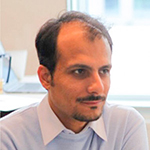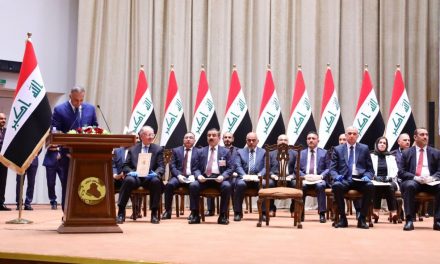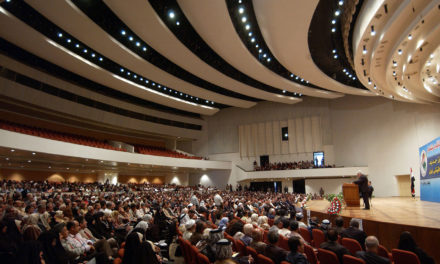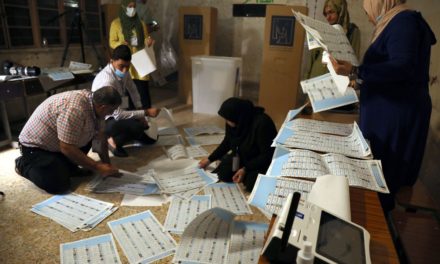Part I
The Kurdish referendum on September 25, 2017 created a sharp political crisis that shifted the attention of global media towards the Kurdish political narrative. In less than a month after the referendum, this narrative that seemed to a large extent coherent and unified started to fragment and witness some fundamental changes.
Before the events of Kirkuk on October 16, it would have been fair to assume that BBC’s interview with Masrour Barzani represented a fitting sample of the dominating narrative in Kurdish politics. Masrour, the head of intelligence and security in the Kurdistan Regional Government (KRG) and the son of Masoud Barzani, the de-facto president of the KRG, provided a summary of the main arguments Erbil used to justify its policies and actions. Listening to Masrour, it was possible to identify a number of themes continuously reoccurring in the statements of other top Kurdish officials.
One of the most prevailing and overarching themes in the Kurdish discourse was that Kurds are disadvantaged in the new Iraq, that they tried everything to be part of Iraq, yet Baghdad does not treat them as equal partners, nor is it willing to resolve the issues between the two sides.
The second theme is a continuation of the first theme, which is based on reiterating that Baghdad is undemocratic. According to this narrative, Baghdad treats Kurds unjustly. Baghdad’s system is labeled as ‘sectarian’ where no real power-sharing taking place. Furthermore, the constitution is only being implemented when it serves Baghdad’s interests. According to the official Kurdish political narrative at the time, there are 55 violations that represent ’55 reasons for independence’. In addition, the referendum is a democratic process that Baghdad does not want to accept, although it is ‘constitutional’.
The third reoccurring theme in the Kurdish narrative is that Kurds are at risk, aggressions that happened to them before 2003 could happen in the future. The argument goes that although ‘the regime’ has changed, the ‘mentality’ of those ruling in Baghdad has not. Hence, a semi-autonomous region is not enough to protect the Kurds, only independence can with international guarantee to protect Kurds against any threats and atrocities from Baghdad.
A fourth and dominant theme present in the Kurdish narrative was viewing the referendum as the ‘one and only’ option for the Kurds. The narrative was that the referendum was a peaceful mean to decide the type of relationship the Kurds want with Baghdad, and that it represented a mandate to negotiate.
These themes represented the main pillars of the argument Erbil used to push for the referendum and probably would have later to achieve independence. However, this narrative is lip service directed mostly towards Western media and diplomats to present the Kurdish case. There was another parallel narrative that was less diplomatic. In this narrative, Kurdistan has never been nor would be part of Iraq, and that the desire for independence is a century old regardless of the political justifications. A famous quote by Masoud Barzani is that, “the borders of Kurdistan must be drawn with blood” and that Article 140 of the Iraqi constitution, which was not implemented by 2007 as set out by the constitution, has been executed by Erbil in 2014 when the later unilaterally took over control of the disputed areas. According to Barzani at that time, there was no need to talk about this article anymore.
This parallel narrative and the actions that accompanied it on the ground contradict the claim that Erbil has tried hard to give the new Iraq a chance. When in reality, Erbil continued towards becoming more independent from Baghdad, consolidating resource, power, and land regardless of what was happening in the rest of Iraq. Interestingly, KRG’s PR efforts skillfully balanced between these two narratives, with the first being more diplomatic and intended to gain international support, while the second less conciliatory and more combative, aiming towards projecting strength, and clearly intended for internal consumption.
There were also many issues that the Kurdish leadership kept silent about, which in itself also represents a theme. One of the most important questions until this day remains unanswered and is continuously skirted by Kurdish officials is how the Kurdish leadership, and more specifically the Kurdistan Democratic Party (KDP), could overlook the implications of their decision to hold the referendum unilaterally in such complicated times, in a turbulent region of the world, ignoring the warnings of all major stakeholders? It is still unclear how the Kurdish leadership approved the provocative wording of the referendum question that not only addressed Kurds inside the officially recognized Kurdish region in Iraq, but virtually all Kurds in the disputed areas and beyond, without putting in mind Iraq and its neighbors’ concerns about disrupting regional balances. Some have theories on why this happened, but there has not been a real explanation by the Kurdish leadership itself. However, the most important question of all is, how Masoud Barzani ignored the U.S. State Department’s advice to postpone the referendum and passed on its offer of support in negotiations with Baghdad?
While the narratives mentioned were the dominant ones and officially promoted by Erbil, there was another narrative developing in Sulaymaniyah. On 12th of October, the same day of Masrour Barzani’s interview with the BBC, a relatively new voice in Kurdish politics emerged. Bafel Talabani, the son of the late and former President of Iraq and Patriotic Union of Kurdistan (PUK) leader Jalal Talabani, made a short but significant statement. Outspoken in English, but reportedly not so much in Kurdish, Bafel Talabani appeared in a televised statement that went viral, calling in a perfect British accent and assertive tone, the Kurds to negotiate with Baghdad based on constitutional law, and to handle the situation “Mam Jalal’s way”, referring to his father’s well known diplomatic approach to difficult crisis. He also asked the PUK to unite and suggested a new joint administration for Kirkuk. Bafel’s statement was not much diverting from the dominating Kurdish political narrative after the referendum in its call for negations. However, there was a clear acceptance of Baghdad’s federal authority. He asked the PUK to return to the Iraqi parliament, and accepted the federal administration of the Kurdish Airports based on mutual agreement between the federal government of Iraq and the KRG.
While promoting the PUK as the most eligible actor to resolve the crisis with Baghdad, there was also a clear discontent with the current direction the PUK was moving towards, and a notable focus on the importance of a unified party. This was a clear admittance that the PUK suffered from division, and that this rift has become bigger after the referendum. It also was an indicator that a new narrative was developing inside the Kurdish camp that only became clearer after the developments in Kirkuk on October 15, 2017.
Part II will provide a summary of the Kurdish narratives after the events Kirkuk.

Muhammad Al-Waeli
Muhammad Al-Waeli is an Iraqi commentator on political and social issues. He is currently doing a PhD in Human Resource Management and is interested in politics, media, and development.










